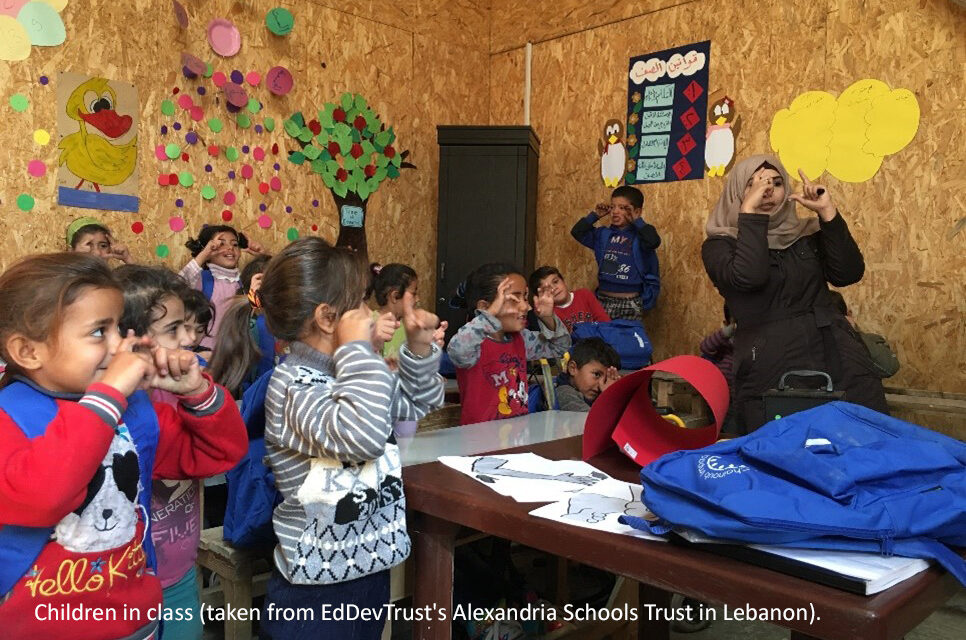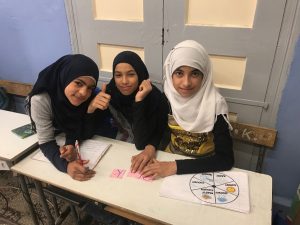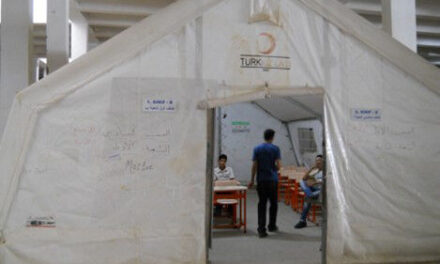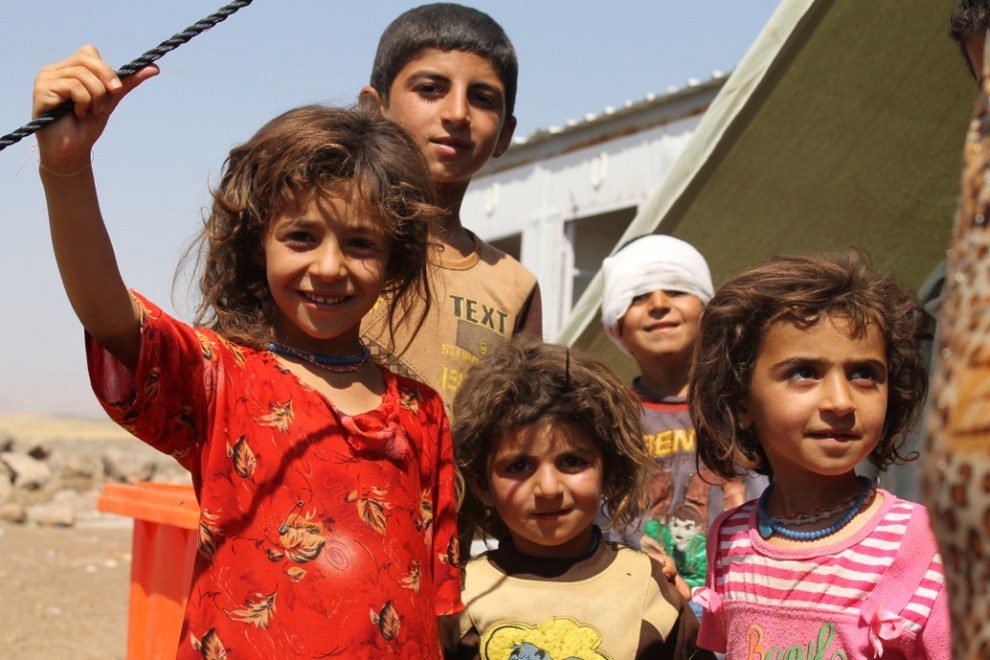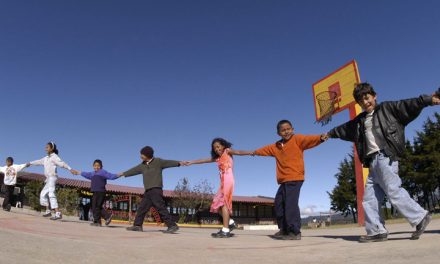This blog was written by Kate Sims, with Kristine Gorgen and Joe Hallgarten, Education Development Trust. It was originally published on the Inter-agency Network for Education in Emergencies (INEE) website on 11 September 2020.
This post includes insights and recommendations on how the urgency, adaptability, and creativity of education leaders in conflict-affected contexts can inform and inspire the COVID-19 response — the largest ever global education emergency — as well as future worldwide shocks.
Across the world, our school systems, leaders, teachers and learners are looking for solutions and inspiration in the face of COVID-19’s challenges. How and when will children best be able to return to school, and what approaches will best support them, building individual and system resilience for the inevitable next emergency? Whilst the stress and insecurity in this current climate are palpable, we are also seeing new spirits of collaboration and empathy, and a willingness to look beyond traditional siloes to cross-pollinate ideas, including between schools and higher education, between low-tech and high-tech solutions, and between the Global South and North.
As part of a series of reports exploring the issue of education and COVID-19, written by Education Development Trust (EdDevTrust) for the Global EdTech Hub, we recently completed a review that considers lessons from education in conflicts and previous emergencies that could contribute to the global response to COVID-19. Although we looked mainly through the lens of education technology (ed-tech), we included low-tech responses, and identified no-tech approaches that might, through the application of ed-tech, be scaled rapidly to support learners.
Whilst there are some clear differences between the current crisis — as the largest ever global education emergency — and the more local crises faced in other (often more longstanding) emergencies, we believe there is much to learn, in particular from the way that many conflict-affected contexts, and their education leaders, have demonstrated mindsets of urgency, adaptability and creativity in their responses. They are true system entrepreneurs.
In our analysis, we used the excellent INEE Minimum Standards to structure our investigation and insights. Our appendix has tentatively scored each of the standards in terms of the broader relevance for COVID-19, and noted coordination, monitoring, equal access and protection and wellbeing — amongst others — as having a heightened relevance for this crisis. We hope that this provokes discussion amongst those practitioners within INEE’s membership who are far more well versed than we are in the application of these standards.
Key Insights
Despite the general dearth of robust evidence on the impact of technology-enabled solutions in EiE contexts, the report encountered solutions that harness a variety of high- to low- (or no-) technology platforms for learners and their communities. Two insights that we found most compelling were the needs to prevent widening of gaps caused by existing inequalities, and to embed psychosocial support to encourage strong intellectual foundations for future learning. For the latter, these solutions often centred on providing support to children and their families to process trauma and stress.
Children’s physical and mental wellbeing has been put under the international spotlight as a result of COVID-19, with school closures, lack of access to school feeding programmes and an enhanced risk of violence and abuse across low-, middle-, and high-income countries. Some of the responses to the pandemic to date seem well considered — for example, in Kenya, rapidly mobilised partnerships between education and health providers have enabled community health volunteers to deliver learning materials to and check in on vulnerable students. In other contexts, food vouchers have been provided or parents and other carers have received advice and psychosocial support for caregivers.
Our report also identified key insights from previous protracted crises. For example, the unpredictable nature of the Israeli-Palestinian conflict and consequent disruption to education provision has, over the years, prompted the requirement for innovation in the education system. Such innovation has been undertaken through the UN Relief and Works Agency for Palestine Refugees in the Near East (UNRWA) and within the Palestinian Authority, to support the continuation of learning and to alleviate the protracted crises facing young people in the region. The numerous approaches to ongoing ‘shock responsiveness’ include an online education portal that provides channels to support communication, teaching and learning, and an SMS notification system that, despite some challenges, alerts parents and learners of changing security situations, school closures, reopenings and evacuations. This exemplifies some of the approaches that can be taken to mitigate against disruptions to education systems, which may well prove helpful in the event of future waves or localised outbreaks of COVID-19 — or indeed, potential future epidemics.
Another protracted crisis in the region has demonstrated collaboration driven by creativity: specifically, in response to the war in Syria. In 2015, Norad launched the competition EduApp4Syria to identify smartphone applications to support the education of Syrian children aged between five and ten. The winners were Antura and the letters, focusing on beginner-level Arabic literacy, and Feed the monster, which focused on socioemotional wellbeing. The open-source apps were launched in 2017 and incorporated educational content into digital games — designed to be played independently, with minimal adult supervision — on a smartphone or tablet computer. Even better, an impact evaluation found that both games led to statistically significant improvements in oral reading fluency, as well as improvements in children’s psychosocial wellbeing.
Equally, stories from school leaders in preparation for the eventuality of schools reopening demonstrate the need to be adaptive, flexible and ready for alternative provisions for students, including remote and blended learning, reflecting the daily practicalities of delivering education in conflict and emergency scenarios. Teachers cannot be forgotten; the same will need to apply to ensure continuity of professional development, training new teachers, and supporting teachers to transition in and out of remote learning contexts. In Rwanda, Jordan and Lebanon, EdDevTrust has implemented mobile-enabled professional development that supports peer coaching, distribution of materials, and exemplification of good practice.
Our Recommendations
As we collectively confront the challenge of ‘building back readier’ — ensuring that education systems are rebuilt with a focus on increased future resilience — EdDevTrust is scoping options for a new coaching programme that would position education in emergencies (EiE) system leaders as experts, enabling them to support education leaders dealing with COVID-19 responses. The recommendations that follow are more design principles than specific recommendations, but we hope that our ideas stimulate further discussions and examples of inspiring practices. As a powerful, knowledgeable network, we look forward to your insights.
- Put learning first: Balance quality pedagogy and equitable provision.
- Stay realistic: View any education technology interventions as an enabler rather than a transformer.
- Take collaborative control: Stimulate rapid collaboration solution design and scaling between non-tech and tech providers, fostering principles and practices of equal partnerships.
- Mix your modalities: Where possible, opt for multi-modal approaches that include a range of low-, mid- and higher-tech interventions, all of which can be dialled up or down in response to different local contexts and stages of school reopening.
- Adapt by design: Strive to be adaptive at all stages of your decision-making processes, building greater adaptive tolerance amongst donors, governments, NGOs, school leaders, and practitioners.
- Prioritise wellbeing: Ensure that psychosocial support — for learners, educators and families — forms part of any intervention.
- Ensure strong communication: Communicate regularly with school leaders and teachers; encourage peer networks to support well-being and professional learning.
- Understand your impact: Use ed-tech to support lean but long-term evaluations of all interventions, simultaneously building capacities of practitioners.
- Prepare for next time: Use ed-tech resources to support future shock responsiveness, as well as immediate shock responses.

